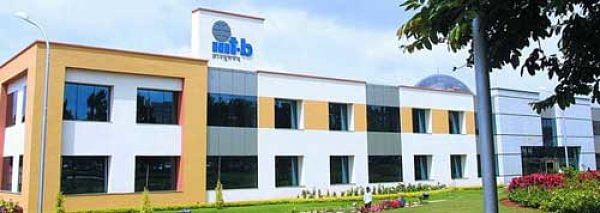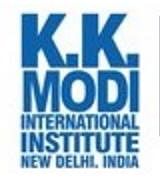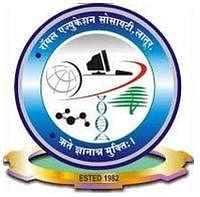M.Sc Software Engineering Syllabus and Subjects

M.Sc. Software Engineering syllabus gives the knowledge of fundamentals of software engineering. The M.Sc. Software Engineering course prepares the students with good technical knowledge about the subject so that they can excel in the marketing industry.
M.Sc. Software Engineering subjects are spread across four semesters. The M.Sc in Software Engineering subjects are designed to give the students a deeper understanding of the course and specialization they choose to pursue.
Semester Wise M.Sc. Software Engineering Syllabus
The M.Sc. Software Engineering 1st year syllabus primarily focuses on the technical subjects related to the field of software engineering. Due to this reason, the M.Sc. Software Engineering's first-year syllabus doesn’t change all that much. It introduces students to all the important details of the course they must require.
Listed below is the syllabus of M.Sc. Software Engineering according to the semester is a core subject and therefore is to be the same across the board.
M.Sc. Software Engineering First Year Syllabus
The table below contains the list of M.Sc. Software Engineering subjects in the first year:
| Semester I | Semester II |
| Reliability Management | Software Quality Engineering |
| Information Technology and Project Management | Personal Development and Research Management |
| Software Engineering Support Environments | Android Application Development |
| Engineering Chemistry | Multivariate Calculus and Differential Equations |
| Environmental Studies | Modern Physics |
M.Sc. Software Engineering Second Year Syllabus
The table below contains the list of M.Sc. Software Engineering subjects in the second year:
| Semester III | Semester IV |
| Problem Solving using C | Network Programming |
| Comprehensive Examination | Data Warehousing |
| Ethics and Values | Technical Communication |
| English for Engineers | Multimedia Computing |
| Interactive Design | Digital Electronics and Microprocessors |
M.Sc. Software Engineering Subjects
M.Sc. Software Engineering subjects are dependent on the electives that the aspirants decide to pursue. M.Sc. Software Engineering subjects are decided based on the core topics in computer science, as well as the topics in the specialization. M.Sc. Software Engineering subjects are divided into core and elective subjects. The elective subjects are optional subjects that make the course flexible and diverse.
M.Sc. Software Engineering Core Subjects
The core M.Sc. Software Engineering subjects list contains essential subjects that all M.Sc. Software Engineering students study irrespective of their specialization, which is as follows:
- Reliability Management
- Software Quality Engineering
- Information Technology and Project Management
- Personal Development and Research Management
- Software Engineering Support Environments
- Android Application Development
M.Sc. Software Engineering Elective Subjects
- Computing
- IT
- Design Technology
- Physics
M.Sc. Software Engineering Course Structure
The M.Sc. Software Engineering course structure consists of core subjects. The course is a three-year-long undergraduate course, divided into eight semesters. From the third semester onwards, students are introduced to specific subjects related to their specialization. The course structure is:
- IV Semesters
- Core Subjects
- Postgraduate Course
- Research Project
M.Sc. Software Engineering Teaching Methodology and Techniques
M.Sc. Software Engineering teaching methodology and techniques encompass traditional lecture-based training. The traditional classroom teaching methods allow the students to ask the questions they might have and get answers to them. The course has teaching methodologies and techniques designed to ensure that the students pursuing this course have access to all the infrastructure and facilities available.
Listed below are the teaching methodology and strategies in general:
- Lectures
- Practical Sessions
- Research Papers
- Seminars
- Group Discussions
- Traditional Classroom-Based Teaching
M.Sc. Software Engineering Course Projects
When pursuing a Bachelor of Technology course, research projects are an integral part of the studies. These projects are assessed by the professors to judge the student's understanding of the subjects. Students can choose their project topics based on the specialization they choose to pursue. Some of the popular research projects are listed below:
- Software Project Management
- Engineering Graphics and Principles
- Software Architecture
- Computer Networks
M.Sc. Software Engineering Course Books
When pursuing an M.Sc. Software Engineering books can be a great investment for the students as they can really help them learn about their specialization in great detail. Books can be a source of information for the students where they can further learn about topics of their interest.
Students can rent out reference books from libraries, download them online or purchase them. Listed below are some of the popular M.Sc. Software Engineering course books that the students can invest in:
| Name of Book | Author |
| Software Engineering – A Practitioner's Approach, 8th Edition | R.S.Pressman |
| Software Engineering 10th Edition | Ian Somerville |
| Software Engineering: Principles and Practice, 3rd Edition | Hans van Vliet |
| Object-Oriented and Classical Software Engineering, 4th Edition | Stephen R. Schach |
| Fundamentals of Software Engineering, 4th Edition | Rajib Mall |
























